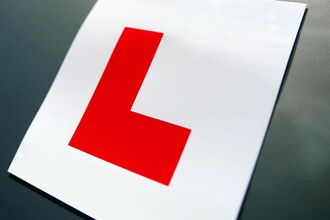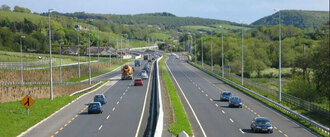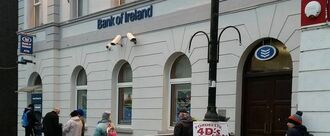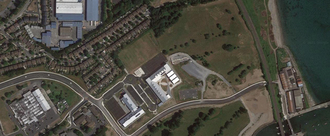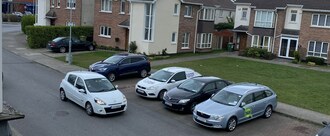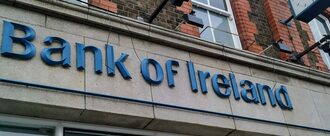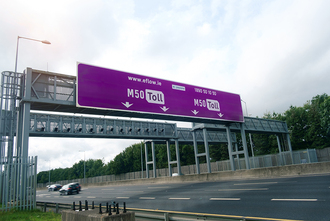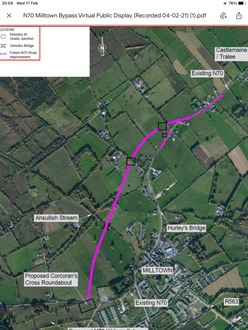- Featured
- Animal Rights
- Anti-racism
- Arts & Culture
- Children
- Climate
- Corporate accountability
- Crime
- Disability rights
- Economic
- Education
- Environment
- Food and Sustainable Production
- Gender Equality
- Governance and Transparency
- Health
- Housing
- LGBT Rights
- Mental health
- Northern Ireland
- Planning
- Privacy and Data Protection
- Rural Inequality
- Social Justice
- Trade
- Transport and Infrastructure
- Workers' Rights
- More
-
Do not reroute bus services in Dún LaoghaireCouncil officials in Dún Laoghaire are proposing to reroute the 46A, 75, 7, 7A, 7D and 63 bus routes from George's Street Lower. This will remove the bus stops from Marine Road and St Michael's Hospital. Thousands of local hospital users and people with mobility challenges rely on these bus stops. There has been no consultation with bus users or groups representing people with a disability. The proposal should be suspended to allow a proper consultation with stakeholders and local representatives.7 of 100 SignaturesCreated by C M
-
Underground the proposed Irish North South Interconnector (NSI) power line.Eirgrid, who operate the Irish Electricity Grid, plans to link the electricity grids in the Republic and North of Ireland by a 400kv overhead power line called the North South Interconnector. This plan would involve the erection of 409 steel pylons ranging in height from 26m to 51m through rural Meath Cavan and Monaghan and Tyrone in close proximity to many homes. This proposal has been rejected vehemently by the residents of these counties on the basis of (a) Health risks associated with living in close proximity to power lines, in particular an association with childhood leukemia, (b) Impact on Heritage, Community life, farming and wildlife (c) Visual impact (d) Noise (e) Impact on property values. From the outset the affected communities, through their representative group NEPP (North East Pylon Pressure) have advocated for the project to proceed using underground cabling to connect the power grids. Eirgrid rejected this proposal stating initially that it wasn't feasible and would cost from 10 to 25 times the overhead option. Eirgrid have since had to concede that undergrounding is indeed feasible and that their costings were grossly wide of the mark. Undergrounding is not in fact more expensive when all costs are taken into account. Indeed Eirgrid have recently selected UNDERGROUND CABLING as the best option for the Kildare-Meath Grid link upgrade. Eirgrid state ..."during the consultation period, new information was received in the form of advice from the Asset Owner cable specialists suggesting that UGC can be constructed in a more efficient manner than was previously assumed.." It can be laid along the road side in a trench 2m by 2m. Had Eirgrid used the same criteria in the Public Consultation process for NSI there is no doubt the NSI would be undergrounded. It is worth noting that Eirgrid are planning to underground the Celtic Interconnector and have dropped plans for the Grid west Overhead line. Why scar the landscape and negatively impact our rural communities for generations to come when there is a viable alternative. Help us to preserve the beauty of our landscape and protect the Health and well-being of our communities. Undergrounding this project is feasible and affordable. We call on Govt to direct Eirgrid accordingly.731 of 800 SignaturesCreated by Philip Ward
-
Let People Do Their Driver Theory Test OnlineDue to COVID-19 the backlog of people waiting for a driver theory test is extortionate. This is impacting people trying to find work and many of these are young people, who are already suffering from isolation in a pandemic now to be told they may have to wait longer to start out in the work-force. We already know there was an online pilot for truck and bus licenses and the RSA committed to making this service available for all theory test customers, but we are still waiting for the launch. Once this is launched the backlog will go down and will lower the unemployment in Ireland. https://www.irishexaminer.com/news/munster/arid-40218968.html58 of 100 SignaturesCreated by Meghan Roe
-
Defund the Glen of the Downs car tunnel - invest in public transport for Wicklow and Wexford insteadWe are in a climate emergency and Ireland has the highest transport emissions per capita in the EU. This project to increase capacity for more motorists on the M11 was dreamed up in 2018 as part of the last government's road expansion programme. It is a proposal that denies the seriousness of the climate crisis. This project has not entered the design phase yet so there is still time to cancel it and divert the remaining funds into solutions that will actually work to decrease congestion, decrease Ireland's transport emissions and decrease all of the other effects of releasing tens of thousands more cars onto the roads of the greater Dublin area every day. Email the Minister for Transport and Climate Action to let him know that you think this is disastrous for our climate ambitions: [email protected] If you live in Wicklow, Dún Laoghaire-Rathdown or Wexford, contact your local TDs and councillors to let them know that this money would be better spent on public transport which would provide lasting improvements for commuting and for quality of life: https://www.whoismytd.com Further reading: "New road capacity attracts new drivers. In the short term, people who had previously been discouraged from using congested roads start to use them." https://theconversation.com/climate-explained-does-building-and-expanding-motorways-really-reduce-congestion-and-emissions-147024 "for every 1 percent increase in highway capacity, traffic increases 0.29 to 1.1 percent in the long term (about five years out), and up to 0.68 percent in the short term (one or two years)." https://usa.streetsblog.org/2017/06/21/the-science-is-clear-more-highways-equals-more-traffic-why-are-dots-still-ignoring-it/ "But even after spending €1 billion on these works, the M50 will remain as congested as ever, as the National Roads Authority (NRA) has conceded." (2006) https://www.irishtimes.com/opinion/building-new-roads-won-t-solve-m50-traffic-problem-1.101421714 of 100 SignaturesCreated by Oisin O'Connor
-
Keep Ballyhaunis Bank of Ireland Branch OpenFor Ballyhaunis and its community to progress we need our local Bank of Ireland branch operational; to be an open and fully functioning Bank. The Ballyhaunis Community have built and maintained this Bank over the last Century and are dependent on it for its future growth which is crucial to the economic future of the region. We now call on the Minister for Finance Paschal Donohoe to now use his influence to have this decision reversed. We need your help please sign our petition, spread the word on social media and anywhere we can get support. How it will be delivered The petition will be delivered directly to the Minister for Finance, Paschal Donohoe TD and by post to the CEO and Board of Bank of Ireland.1,679 of 2,000 SignaturesCreated by Ballyhaunis Chamber of Commerce
-
Walk & Cycle path at Old Bray Golf Club landProvides a safe route to schools. Provides a shorter, more convenient route to Bray Seafront Joins up green amenities259 of 300 SignaturesCreated by Kevin Dunne
-
Covid19 Car Drivers 50% Insurance rebateSo many are suffering because of the Covid19 pandemic. Most people have used their cars 50% less than normal because of Lockdown rules. Why should they pay the full insurance premium to the insurance companies?12 of 100 SignaturesCreated by John Adams
-
Public Bins needed in Haulbowline Amenity ParkThe Ringaskiddy Tidy towns was started in the middle of lockdown in 2020 as a direct result of the huge influx of visitors to the village and surrounding area. Unfortunately, an increase in visitors also meant an increase in rubbish, and after several weeks (and even months) of local volunteers collecting rubbish, the natural desire to increase the appearance of the village as a whole led to the establishment of a Tidy Towns group and committee. Together we have collected 2.3 tonnes of rubbish in the past 12 months, over 400kgs of glass bottles and transformed the village and the surrounding backroads and beaches. Five beautiful old boats filled with plants and maintained by volunteers now adorn the village in strategic places. Huge planting and weeding projects have been undertaken successfully in the core of the village. But for every thing we “prettify” every week we encounter illegal dumping, dog fouling, people leaving their coffee cups wherever they please , and so on. This has only been exacerbated by the opening of Haulbowline Amenity Park. We understand from a post on Facebook last month by Seamus McGrath TD that the wrong bins were installed at a cost to Cobh Municipal Council, and that they have no plans to install the correct bins. It is not the fault of the residents of Ringaskiddy if unsuitable bins were installed . “Encouraging” people to take their waste home is not going to work. The idea that a public park would not have public bins in simply unworkable. Whilst we were all still being encouraged to stay within our 5kms locals stopped going to the new park due to the levels of dog fouling. We’ve provided bins of our own volition to our two local beaches, but we cannot maintain the new park by ourselves. I’ve seen in an article published today on the Examiner’s Facebook page that Cobh Municipal Council seem to still be talking about the issue, meanwhile rubbish is being thrown into the sea, the county is opening to travel tomorrow, which may lead to more visitors to the area, and the summer is coming. We cannot wait any longer.331 of 400 SignaturesCreated by Noelle Nally
-
Speed Ramps for Griffeen Glen BoulevardThere are a large number of young children who regularly play on the green area and roads in Griffeen Glen Boulevard. Although we have a 'Kill Your Speed, Not Our Children' sign on a lamppost as drivers enter the estate, unfortunately, we are constantly seeing drivers speeding through the entrance road and taking the left turn around the green at speed where young children are often playing. We feel that the addition of a speed ramp in the first 30-50 yards of the entrance road to Griffeen Glen Boulevard, as drivers come in off the roundabout, would greatly reduce the risk of a serious injury and improve the safety of our children and the general quality of life for residents of the road.52 of 100 SignaturesCreated by Niall Geraghty
-
Keep our Bank branch openFor towns and communities to thrive they need their local bank branches to stay open. In the middle of a pandemic when customers and businesses are under severe pressure, Bank of Ireland, which was bailed out to the tune of €4.7 billion by the Irish people, should not be closing bank branches. Keeping our local bank branches open is crucial to the economic future of communities as we seek to rebuild after this pandemic. As the largest shareholder in Bank of Ireland, Minister for Finance Paschal Donohoe must stand up for communities facing the closure of the 103 local bank branches listed below. Carlow: Boris, Tullow Cavan: Arva, Cootehill, Kingscourt Clare: Kilkee, Miltown Malbay, Tulla Cork: Cork Institute of Technology, Glanmire, Bantry, Cobh, Dunmanway, Kanturk, Millstreet, Michelstown, Youghal Donegal: Bunbeg, Bundoran, Dungloe, Glenties, Moville Dublin: James Street, Law Library, Phibsboro, Ballycoolin, Killester, Merrion Road, Rathmines, Ballyfermot Galway: Ballygar, Dunmore, Oughterard Kerry: Castleisland, Kilorglin, Tralee IT Kildare: Celbridge, Kilcullen, Leixlip, HP/Intel, Monasterevin Kilkenny: Callan, Graiguenamanagh, Thomastown, Urlingford Laois: Durrow, Mountrath, Rathdowney Leitrim: Drunshambo, Manorhamilton Limerick: Abbeyfeale, Askeaton, Bruff, Caherdavin, Rathkeale, Roxboro, University of Limerick Longford: Granard Louth, Dunleer Mayo: Ballyhaunis, Charlestown, Kiltimagh Meath: Athboy, Enfield, Ratoath Monaghan: Castleblayney, Clones Offaly: Banagher, Clara, Edenderry Roscommon: Elphin, Strokestown Sligo: Ballymote, Tubbercurry Tipperary: Cahir, Cashel, Templemore Waterford: Ardkeen, Kilmacthomas, Lismore Westmeath: Athlone IT, Castlepollard, Kinnegad, Moate Wexford: Rosslare, Taghmon Wicklow: Carnew, Rathdrum, Tinahely North: Ballymena, Banbridge, Belfast (Lisburn Rd), Belfast (Ormeau Rd), Belfast (University Rd), Crossmaglen, Derry (Strand Rd), Downpatrick, Dungannon, Keady, Limavaddy, Lisburn, Lisnakea, Portadown, Strabane2,574 of 3,000 SignaturesCreated by Pearse Doherty

-
Abolish The M50 Toll ExtortionConstruction began on the bridge in 1987 and built by National Toll Roads (NTR plc is a private company). They built 3.2 km of road way linking the N3 and N4 including the bridge. In return for building and maintaining the bridge NTR plc received the rights to operate It as a toll Bridge for 30 years. (1990-2020) Motorists have been charged daily for the use of this essential route for the last thirty years. In recent years and since the opening of the e-flow system, the state has allowed taxpayers to be charged 50 times the original toll fee for unpaid journeys even through a recession resulting in sherrifs being awarded court orders to break into citizens homes and hold their property to ransom. The 30 year contract was finished in 2020 sign this petition to move to abolish this extortion. The Irish people pay through the teeth in terms of taxes and recieve next to nothing for their contribution. Help us raise awareness and end this additional austerity and sign this petition.79 of 100 SignaturesCreated by Michael Doyle
-
Stop the N70 Milltown Co.Kerry BypassTo preserve the small businesses, environment and the history of a beautiful rural village on the Wild Atlantic Way. To prevent the scarring of rolling parkland of agriculture land and the obstruction of the views of the Slieve Mish Mountains by a raised roadway.4 of 100 SignaturesCreated by Josephine Spring



